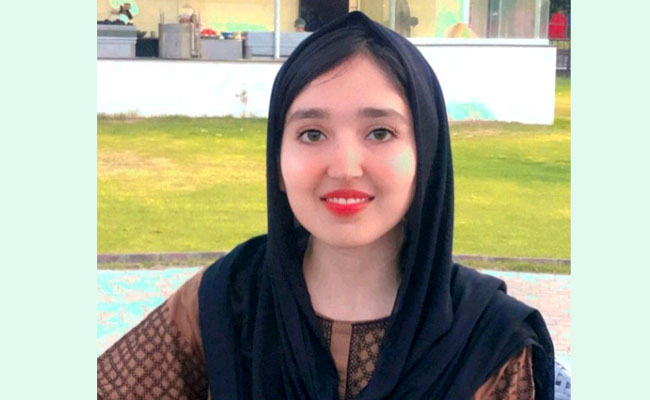By Qirat Mirza
Every year on 10 December, the world celebrates Human Rights Day, the very day when, in 1948, the United Nations General Assembly adopted the Universal Declaration of Human Rights (UDHR) and the 75th anniversary of the Universal Declaration of Human Rights will be celebrated on 10 December 2023. This year’s Human Rights Day theme is “Consolidating and Sustaining Human Rights Culture in the Future” by ensuring Human rights for all. Since 1945, United Nations has been working for sustaining international peace and order by making efforts for building a world where the rights and freedoms enshrined in the UDHR are not just ideals but tangible realities for every person. However, there are many regions in the world that have been under brutal occupation and Kashmir dispute is one of them.
The Universal Declaration of Human Rights of 1948 also upholds the right of self-determination as a fundamental right of the people. The same year in 1948 India took Kashmir dispute in United Nations Security Council alleging Pakistan’s support for the invasion of Kashmir. Pakistan countered, accusing India of aggression, massacres of Muslims in Kashmir, and questioning the validity of Kashmir’s accession to India. This set the stage for extensive UNSC interventions from 1948 to 1971, spanning 18 resolutions and employing three key methods: SC commission (1948–1950), appointed representatives (1950–1965), and reliance on the Secretary-General (since 1965). Unfortunately, for more than seven decades, the Kashmiri people have been denied of this right. Additionally, they are being subjected to every inhuman tactic and draconian laws to perpetuate this illegal action.
The United Nations General Assembly also adopted ‘the Convention on the Prevention and Punishment of the Crime of Genocide’ through its Resolution number 260 on 9 December 1948. As per Article 1 and 2, genocide means; killings, causing serious bodily or mental harm, physical or mental destruction to any individual or a community on the basis of its ethnical, racial, national or religious status forms part of genocide act. Taking into consideration the situation in IIOK , since 1989, Indian occupied forces have killed 96,000 Kashmiris; widowed around 23,000 women; raped over 11250 women and girls; and destroyed over 100,000 dwellings, including schools and houses. Pellet guns have been used extensively since 2016 to blind and paralyze the Kashmiri youth, who protested against occupation forces. Pakistan had released a comprehensive and well-researched Dossier last year covering 3432 cases of war crimes perpetrated by senior officers of the Indian occupying forces since 1989. There were around 700,000 Indian armed forces in the territory as of 2019, and this number was increased by at least 35,000 before the August 2019 lockdown, which led to the unilateral removal of the special status of Kashmir within the Indian Union. The communications blackout and the undermining of the courts — with the head of the Bar Association himself being held under preventative detention and the judiciary’s role being further limited and curtailed — mean that it is difficult to know how many people are detained or where they are, as India has been deporting Kashmiris under administrative detention to various states where some have died.
There are frequent restrictions on religious gatherings, continuous surveillance on mosques and religious leaders and socio-religious organizations like Jamaal e Islami are banned under draconian laws like the Unlawful Activities (Prevention) Act (UAPA) and congregational Friday prayers are banned. He is also apprehending Human rights activist, journalists on the fake charges of terrorism for instance having links with terrorists’ organizations
India claims the territory of Kashmir on two bases 1) the instrument of accession signed by Maharaja of Kashmir 2) there was no legal basis for Self determination in UN charter at the time of partition.
Instrument of Accession, through which Kashmir joined India, was a provisional measure, allowing Indian military intervention. According to which, India accepted the accession temporarily to provide assistance. Statements by Mountbatten and Prime Minister Nehru, emphasizing a potential referendum for Kashmiris, support this notion. According to domestic Law, Kashmir acceded to India with not following the established process for princely states because Mountbatten accepted instrument of accession till the restoration of order and also provided provision to hold plebiscite which India didn’t accept.
The idea of self-determination, though not explicitly mentioned in the 1945 U.N. Charter, became important after World War II. This was a time when colonial empires ended, and new independent nations emerged. This idea aligns with the U.N. Charter’s goal of promoting friendly relations based on people determining their own fate. Even though the complete legal framework for self-determination developed later, the principles in the mid-20th century set the foundation for recognizing the right of people to decide their political status. Therefore, saying that Kashmir’s claim for independence based on the right of self-determination is wrong is absurd.
Consolidating a human rights culture demands a commitment to justice, equality, and the recognition of the inherent dignity of all individuals. Sustaining this culture requires active engagement, open dialogue, and a relentless pursuit of accountability for human rights violations. In light of ongoing human rights violations, there is a crucial need for specific developments that safeguard the integrity of human rights and the right to self-determination for the people of Kashmir. Secondly, until the Kashmir issue is resolved according to the resolutions of the United Nations, which clearly endorse the right to self-determination for the people of Kashmir and the world doesn’t pay heed to human rights violations in IIOK, there will be continuous violations of the human rights culture enshrined in the UDHR. Failing to address these issues could lead to lasting consequences for regional peace.
Writer Qirat Mirza is pursuing BS Internal Relations from International Islamic University and intern at Kashmir Institute of International Relations.
